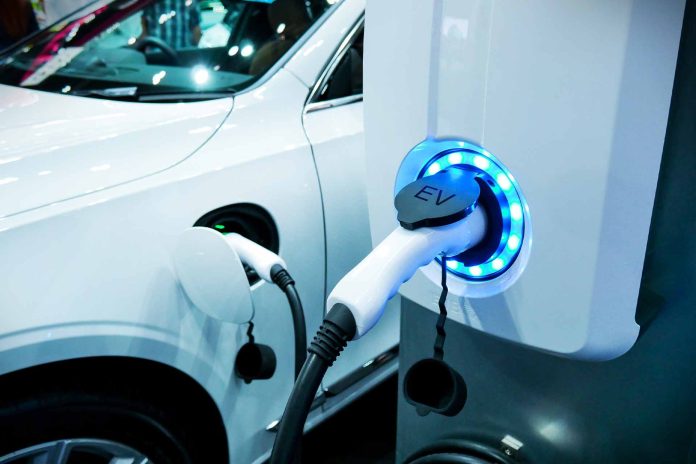The growing popularity of hybrid and electric vehicles (EVs) in Greece has sparked not only enthusiasm, but also unexpected conflicts, most recently regarding the installation of EV chargers, especially in shared living spaces like apartment buildings.
While the shift toward electric mobility aligns with Europe and the world’s sustainability goals, the practicalities of charging infrastructure in multi-owner apartment buildings have proven far from straightforward. Here are the key reasons behind the difficulties and potential solutions for overcoming them, according to Ta Nea.
The Challenge of Shared Parking Spaces
As the number of EVs and plug-in hybrids on Greek roads increases, so does the need for accessible charging points. For apartment buildings, this often means installing chargers in shared or private parking spaces—a requirement that can quickly lead to disputes among co-owners.
In Greece, apartment buildings with multiple owners often have a parking area with shared parking spaces that must follow strict regulations in order to be modified.
The heart of the problem is reconciling the diverse interests and rights of individual property owners in a collective setting, and of course, such as figuring out how to split the bill.
Legal and Administrative Complexities
Installing EV chargers isn’t as simple as plugging in a device. It involves upgrading the building’s electrical infrastructure, particularly in older buildings that lack the necessary wiring or capacity. For shared installations, this means coordinating the layout, wiring, and energy supply to ensure safe and equitable use.
According to current laws, installing EV chargers in shared parking areas requires the approval of at least 501/1,000 ownership shares, says Ta Nea. Once this is secured, a technical report from an electrician or electrical engineer must detail the system’s operation and use, and be appended to the building’s regulations. The rule is meant to ensure fairness but can lead to significant delays for arbitrary reasons or even result in outright rejections due to conflicts among residents.
Some installations in existing buildings also require a permit- namely those that require a new transformer (medium or low voltage MV/LV). Installations in existing buildings that do not require a new transformer do not need a construction permit and cοmpletion is certified via an application to the Greek Electricity Distribution Network Operator (DEDDIE). Meanwhile, if the installation requires a new transformer, relevant documents and plans must be submitted via the e-adeies system by a certified engineer.
Additionally, enclosed parking areas must adhere to fire safety regulations, including the installation of CO2 fire extinguishers (55B) for every three charging points.
Resistance from Other Residents
Not all residents are eager to embrace EV infrastructure. Concerns about potential disruptions, battery fire, increased electricity costs, and reduced parking availability are some of the key reasons cited as points of contention.
The building’s General Assembly can formally object to installations if they believe the project would significantly hinder the use of shared spaces. Objections must be accompanied by a technical report submitted to the relevant Building Authority, with notice to the interested party. Furthermore, installations can be challenged or even halted if they fail to meet safety standards or other legal requirements, or the installation disrupts the functioning of the parking area.
Solutions, New Builds, and Opportunities
While the challenges are significant, solutions do exist. New buildings in Greece are now required to include wiring infrastructure for EV chargers in their electrical plans, ensuring future readiness, and new buildings with 10 parking spots or more must include infrastructure for charging points at each parking spot.
For older buildings, subsidies or incentives for upgrading electrical systems could encourage wider adoption and legal reforms could also streamline the process, highlights Ta Nea. For instance, reducing the approval threshold for shared installations or introducing clear guidelines for resolving disputes could help.
In addition, raising awareness about the long-term benefits of EV adoption—such as cost savings, environmental impact, and increased property value—could win over skeptical residents.
VIA: Πηγή Άρθρου
Greek Live Channels Όλα τα Ελληνικά κανάλια: Βρίσκεστε μακριά από το σπίτι ή δεν έχετε πρόσβαση σε τηλεόραση; Το IPTV σας επιτρέπει να παρακολουθείτε όλα τα Ελληνικά κανάλια και άλλο περιεχόμενο από οποιαδήποτε συσκευή συνδεδεμένη στο διαδίκτυο. Αν θες πρόσβαση σε όλα τα Ελληνικά κανάλια Πατήστε Εδώ
Ακολουθήστε το TechFreak.GR στο Google News για να μάθετε πρώτοι όλες τις ειδήσεις τεχνολογίας.























